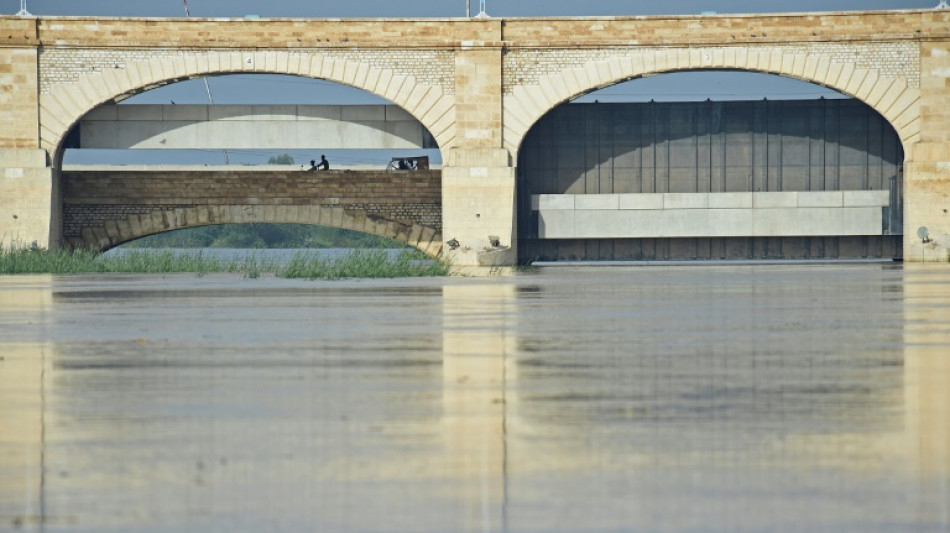
SCS
0.0200


The fate of hundreds of thousands of people in Pakistan's southern Sindh province lies with a 90-year-old barrage that directs the flow of water from the mighty Indus River into one of the world's largest irrigation systems.
The government has declared an emergency to deal with floods caused by record monsoon rains that have affected nearly 33 million people -- many whose livelihoods depend on the Indus.
But just as the river provides during times of plenty, it can also take away.
Sindh has been pounded by weeks of torrential rain that have flooded farmlands across the province, but now torrents from swollen tributaries in the mountainous north are coursing down the Indus, due to arrive in coming days.
The river rises in Tibet and bisects Pakistan as it meanders more than 3,000 kilometres (2,000 miles) south to the Arabian Sea near Karachi.
"That water coming into the river is scaring us," Irshad Ali, a 42-year-old farmer near the city of Sukkur, told AFP as he lamented the date palms and vegetable patches he lost to the monsoon.
"A big storm is about to come."
Water from the Indus is already lapping over its banks in several places, and unless the Sukkur Barrage can control the flow, catastrophe will result.
Originally known as Lloyd Barrage, it was considered an engineering marvel when completed in 1932, capable of discharging 1.4 million cubic metres of water per second through 19 steel gates hinged between stone pillars.
It is the centrepiece of the city, a favourite site for tourists to photograph, and also provides a key bridge across the river.
"It has completed 90 years, whereas it had a 50-year guarantee," Syed Khursheed Shah, Pakistan's Minister for Water Resources, told AFP.
"So we are 40 years beyond its guaranteed life."
- Fortunate forecast -
Water is redirected by the barrage to a series of canals totalling nearly 10,000 kilometres that thread through farmlands, but years of neglect mean they are not capable of dealing with today's record volumes.
"Silt has been piling up and it is not being removed," said Shah, adding a lack of equipment meant the canals hadn't been dredged since 2010.
Metres-thick layers of silt leave less room for the water to flow, causing a backlog and likely flooding at the Indus.
Water is already flowing into the streets of Sukkur, seeping through the walls of buildings along Bandar Road, which leads to the barrage.
"The city is already four feet below the river levels," minister Shah said.
Engineers were scrambling Sunday to reinforce Ali Wahan levee, a crucial curve of the river Indus in the city that is threatened by the swollen river.
Optimism, and a bit of time, are the only relieving factors.
"This embankment is strong, machinery is available and the staff on alert," said overseer Shahid Hussain.
"The good thing is the timing," he added, explaining that flooding caused by local rain should have receded by the time the water from the north courses through.
But if it does rain again closer to home, the situation could change quickly.
"Fortunately the forecast suggests there will be no rains in coming days," Minister Shah said.
J.Liv--ThChM